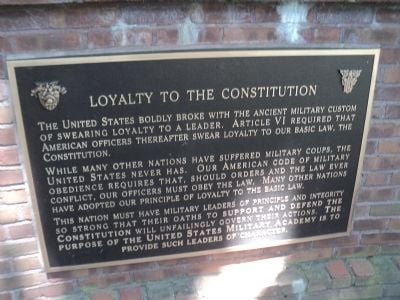Zivotofsky’s Vindication (and the New York Times’ approval) of Signing Statements
It was a little dizzying this morning to read the NYT editorial board's full-throated endorsement of the Court’s decision in Zivotofsky.
It was a little dizzying this morning to read the NYT editorial board's full-throated endorsement of the Court’s decision in Zivotofsky. It wasn’t just that the editorial board endorsed Justice Kennedy’s potentially very broad reasoning in support of an exclusive executive power, which is not the posture the editorial board usually takes toward congressional-executive relations. It was also that the editors endorsed signing statements! The editors noted that “President George W. Bush signed the law, part of an appropriations bill, but refused to follow it, saying that it infringed on the president’s power to speak for the nation on this issue.” What they implied but didn’t quite say, but what the Court made clear, was that President Bush let his constitutional position on the passport law be known in a signing statement. Yes, it was a constitutional override argument in an evil signing statement—which the NYT editors described during the Bush administration as an “offensive theor[y] … that a president's intent in signing a bill trumps the intent of Congress in writing it”—that the Court vindicated yesterday, and that the NYT this morning applauds.
The controversy about signing statements was always exaggerated. (The best evidence for this is that the controversy has died down even as President Obama has continued to issue signing statements, including ones declaring a position that a statute infringes on executive power.) A signing statement is a President’s announcement of (among other things) how he interprets a law he is signing, and the degree to which he finds the law problematic from a policy or constitutional perspective. The vast majority of signing statements that contain constitutional objections (or potential constitutional objections) to a statute are never operationalized with actual non-compliance on the ground. In that sense, the signing statement at issue in Zivotofsky was a rare creature, for it actually made clear that the President would disregard the law in question. That is what President Bush, and then President Obama, subsequently did—disregard a law they believed was unconstitutional. The Supreme Court held yesterday that this was the right constitutional position for the presidents to take, and they in no way questioned Bush's announcement of the position in a signing statement. And this morning the NYT approves this position.
Signing statements are not in themselves cause for concern. If anything, we should applaud their promotion of presidential transparency. Poor interpretations of Article II articulated in a signing statement can be a cause for concern—especially in the rare signing statement that leads to non-compliance. But in such a case the objection should be to the poor constitutional interpretation, not to the perfectly legitimate and non-controversial method in which it is announced to the public.
PS: I must note the irony that in its opposition to Justice Alito’s nomination, the NYT editorial board said that the Alito’s “entire history suggests that he holds extreme views about the expansive powers of the presidency and the limited role of Congress,” and called him out in particular for his “peculiar argument that a president's intent in signing a bill is just as important as the intent of Congress in writing it.” And now in Zivotofsky, we have the NYT praising a position of presidential exclusivity articulated in a Bush signing statement, and Justice Alito joining dissents that argue for a relatively stingy view of executive power and for a powerful congressional role in foreign affairs.


.png?sfvrsn=48e6afb0_5)


